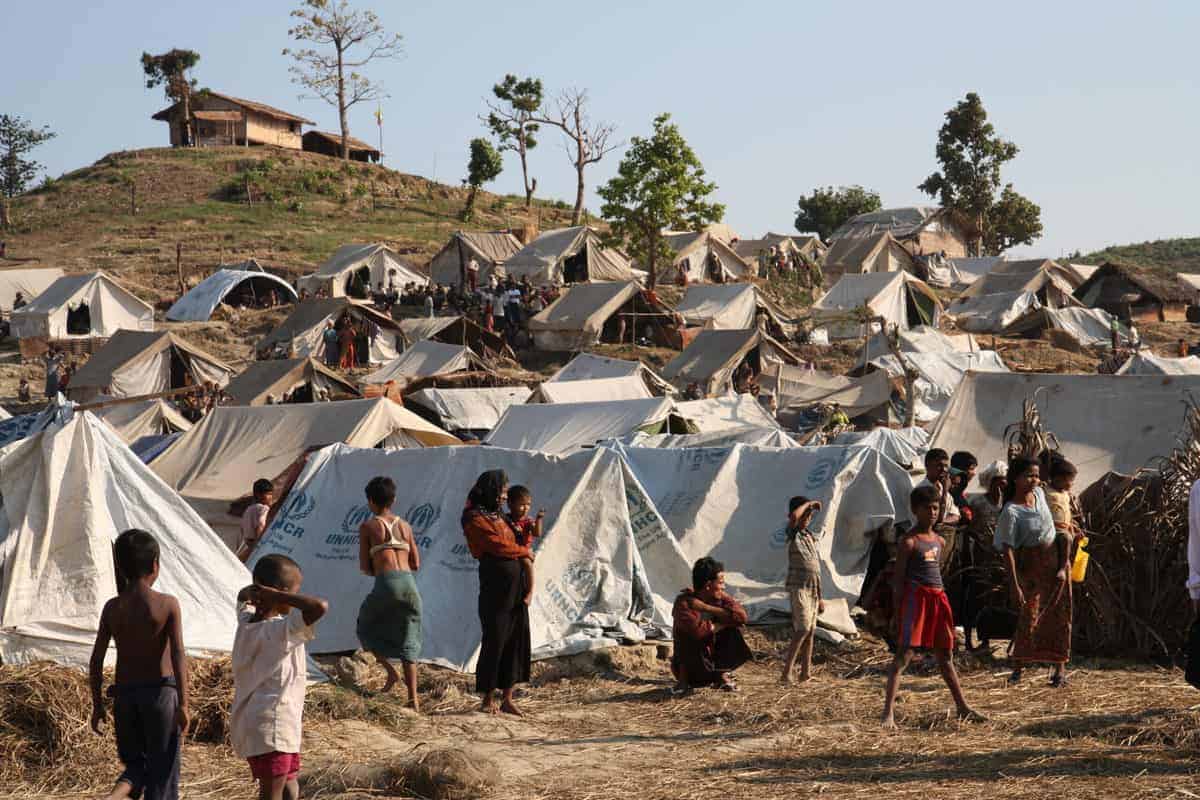Courtesy : LiveLaw
The Supreme Court on Thursday refused to grant relief in a petition challenging the detention of Rohingya refugees in Jammu and the move to deport them back to their parent country Myanmar.
“It is not possible to grant the interim relief prayed for. However it is made clear that the Rohingyas in Jammu, on whose behalf the application has been moved, shall not be deported unless the procedure prescribed for such deportation is followed”, the Court said.
The Court has refused to order the release of nearly 150 Rohingyas detained in the holding centres in Jammu and allowed their deportation to their parent country as per the procedure of law.
A bench comprising Chief Justice SA Bobde, Justices AS Bopanna and V Ramasubramanian passed the order in an application moved by Mohammad Salimullah in the Public Interest Litigation petition filed by him for protection of Rohingyas.
Right not to be deported ancillary to Article 19(1)(e)
In the short 6-page order, the Supreme Court observed that the right not to be deported is ancilliary to right to reside or settle in any party of the territory, which is guaranteed under Articel 19(1)(e) of the Constitution(a right available only to citizens).
“It is also true that the rights guaranteed under Articles 14 and 21 are available to all persons who may or may not be citizens. But the right not to be deported, is ancillary or concomitant to the right to reside or settle in any part of the territory of India guaranteed under Article 19(1)(e)”.
The Court also noted that India was not a party to the Refugee convention. The Court further said that it cannot comment upon the current happenings in Myanmar.
“Two serious allegations have been made in reply of the Union of India.They relate to (i) the threat to internal security of the country; and (ii) thea gents and touts providing a safe passage into India for illegal immigrants,due to the porous nature of the landed borders. Moreover, this court has already dismissed I.A.No. 142725 of 2018 filed for similar relief, in respect of those detained in Assam”, the order further noted.
Recap of arguments
During the hearing held on March 23, Advocate Prashant Bhushan, appearing for the applicant, had referred to the order passed by the International Court of Justice last year to highlight that Rohingyas faced genocidal threat there. He had also pointed out that Myanmar is at present governed by a Military government, which came into power. Therefore, sending Rohingyas – who had faced atrocities from the army even during the civilian rule- back to Myanmar when it is under a Military junta will endanger them, Bhushan had submitted.
He had also placed reliance on the principle of non-refoulement, which forbids the expulsion of a refugee if there is a clear and certain danger of life in the origin country.
Senior Advocate Harish Salve, intervening on behalf of the J&K administration, argued that the principle of non-refoulement was not binding on the India Government as it has not signed the international treaties propounding the said principle.
During the hearing, the CJI made oral observations acknowledging the threat faced by Rohingyas in Myanmar but added that the Court cannot do anything about it.
“Possibly that is the fear that if they go back to Myanmar they will be slaughtered. But we cannot control all that”, CJI said. “We are not called upon to condemn or condone genocide. We are certain that there should be no genocide in earth”, the CJI had added during the hearing.

